Earth
Sign up for our newsletter
We summarize the week's scientific breakthroughs every Thursday.
-
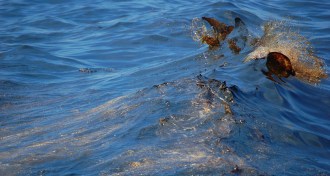 Environment
EnvironmentSunshine is making Deepwater Horizon oil stick around
Sunlight created oxygen-rich oil by-products that are still hanging around eight years after the Deepwater Horizon spill.
-
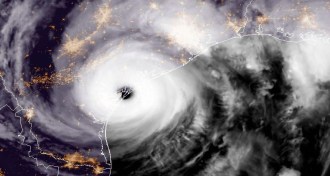 Climate
ClimateTropical cyclones have slowed over the last 70 years
Tropical cyclones are moving 10 percent slower, on average, than they did in the mid-20th century, potentially making them more dangerous.
-
 Environment
EnvironmentA big analysis of environmental data strengthens the case for plant-based diets
A new study calculates the bonus for the planet of choosing more foods from plants.
By Susan Milius -
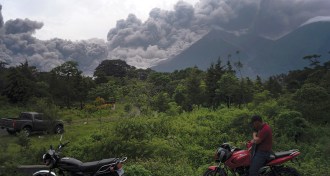 Earth
EarthHere’s a look at the world’s deadliest volcanoes — and the ways they kill
Scientists gathered data on nearly 280,000 global volcano deaths from 1500 to 2017 and sorted fatalities by cause of death, such as lava flows or gas.
-
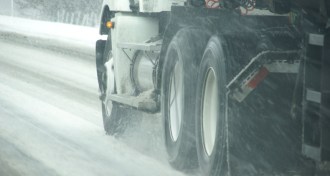 Environment
EnvironmentTreating roads with oil and gas wastewater may spread harmful pollution
When spread on roads, wastewater from oil and gas production can leach radium and other contaminants into the environment, a new study finds.
-
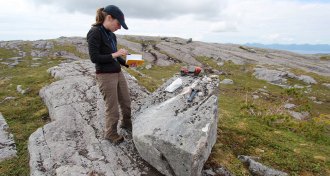 Climate
ClimateThe first Americans could have taken a coastal route into the New World
Alaskan glaciers retreated in time for ancient coastal entries of the first Americans.
By Bruce Bower -
 Paleontology
PaleontologyThe Chicxulub asteroid impact might have set off 100,000 years of global warming
About 66 million years ago, the Chicxulub asteroid impact set off 100,000 years of global warming, an analysis of oxygen in fish fossils suggests.
-
 Climate
ClimateAs CO2 increases, rice loses B vitamins and other nutrients
Field experiments add vitamins to list of nutrients at risk from a changing atmosphere.
By Susan Milius -
 Earth
EarthKeeping global warming to 1.5 degrees C helps most species hold their ground
Holding global warming to 1.5 degrees Celsius by 2100 could help protect tens of thousands of insect, plant and vertebrate species.
-
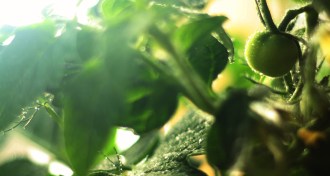 Agriculture
AgricultureNanoparticles could help rescue malnourished crops
Nanoparticles normally used to fight cancer could also be used to treat malnourished crops.
-
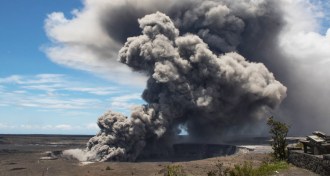 Earth
EarthNo, Kilauea won’t cause mass destruction
A steam explosion at Kilauea isn’t anything like the explosive eruptions of certain other volcanoes.
-
 Animals
AnimalsThese caterpillars march. They fluff. They scare London.
Oak processionary moths have invaded England and threatened the pleasure of spring breezes.
By Susan Milius and Aimee Cunningham